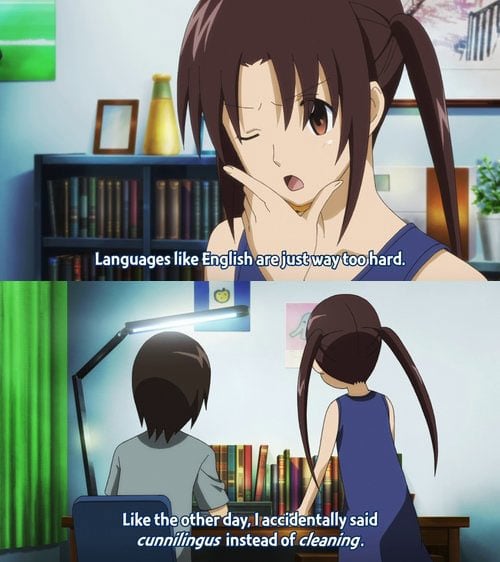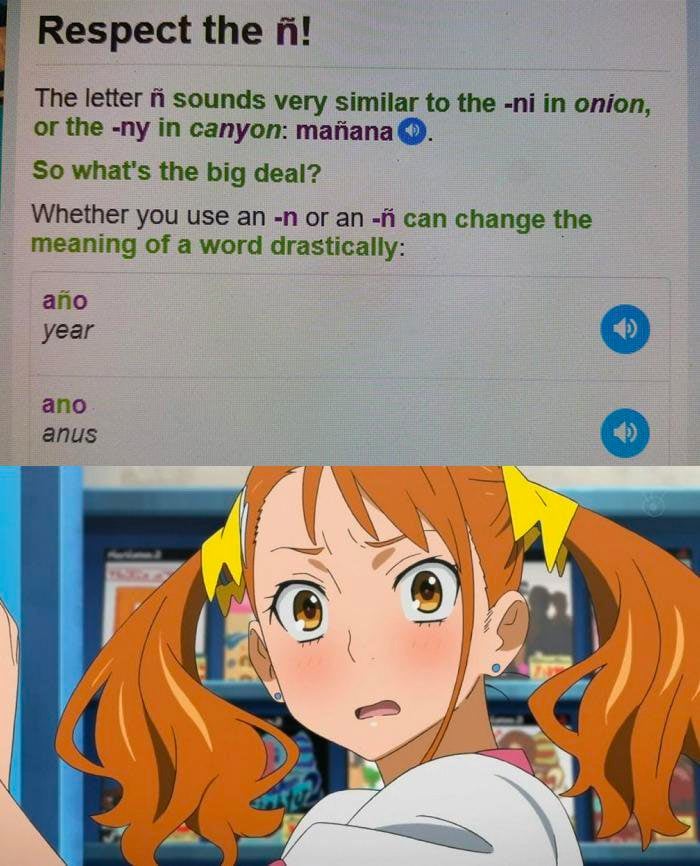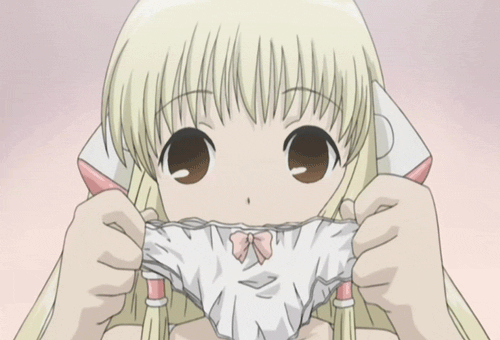
Languages can be dangerous things to use, as anyone who’s forgotten to put the tilde on their n when writing año in Spanish, turning “year” into “anus.” During my years as a teacher, I encountered students who made embarrassing mistakes all the time, like one student who told me how he “fixed his radio” over the weekend, although he said he “fucked” his radio, and someone else who explained about the beautiful tall sky-crappers I could see in Tokyo, getting the word skyscrapers wrong. So I thought I’d do a post of the seven dangerous Japanese words foreigners might misuse.
Of course, foreigners make errors all the time, and no Japanese person will generally bat an eye if you talk about how much you love the Disappearance of Haruhi Suzumiya movie, but accidentally replace 消失 shoushitsu “disappearance” for 喪失 soushitsu “loss of virginity” (which is a pun made by many doujinshi circles). So in practice, you don’t need to fret about making errors. But it’s always best to be warned against of time!
Long and Short Vowel Issues Can Take Your Virginity.
One feature of Japanese that doesn’t exist in English are long and short vowels, which we pretty much ignore in English because we don’t have any similar system. The word bento is really bentou, tofu is toufu, Domo-kun is really Doumo-kun, and Japan’s largest city is Toukyou (Toh-kyou). While learning to use these words properly is important when studying Japanese, transliterating words into another language destroys all these details. English speakers can generally not worry about them.
One of the few examples where you might want to pay attention to the long vowel is 少女 shoujo (with a long first vowel) is “girl,” while 処女 shojo (with a short vowel) means a female virgin. (A male virgin gets a different word, 童貞 doutei.)
It’s funny how absolute long/short vowels are to the Japanese. I had a student with the famous name of Yoko Ono, and when I made a joke of expressing sorrow for her husband John Lennon’s death, she looked puzzled. Then I realized her family name was 大野 Ohno (“big field”), not 小野 Ono (“small field”), as the famous singer’s wife had been, making the connection impossible for her to make.

Kawaii and Kowai.
Two of the first words you learn when studying Japanese are 可愛い kawaii and 怖い kowai. For early Japanese users, it can be easy to mix these two words up.
“Please touch me here!”
Similarly, the words 触る sawaru, to touch, are somewhat close to 座る suwaru, to sit. It’s surprisingly easy to say dokodemo sawatte kudasai (“please sit anywhere”) to a pretty girl and end up asking her to touch you anywhere she likes.
Pretty vs. hated.
Another word pairing I confused a lot when first starting out was 綺麗 kirei, meaning either pretty or clean depending on the usage, and 嫌い kirai, a rather strong word means “hated” or “disgusting.” By making sure you don’t use the wrong word when complimenting a pretty girl, you’ll guarantee you will.
Many Breasts.
One mildly challenging word in Japanese is 一杯 ippai, which generally means “one glass” (as in, “please give me one glass of beer”), but said with a slightly different intonation it can mean “lots of” or “a ton of,” essentially making it mean the opposite. Since it’s very close to the word for boobs, おっぱい oppai, something that’s literally close to all our hearts, you never know when you’ll find yourself asking for a girl’s breasts instead of a beer.

Pantsu or Pantsu?
When they started modernizing, Japan took most of their cues from the British, which is why they adorable words like bonnet, saloon and water closet for the hood of a car, a sedan and a restroom. They also use the word “pants” to refer to underwear, rather than a person’s trousers. As an American, this is one more potential for embarrassment, when I get the wrong word.
Succeed at Sex.
Because it’s based on a small set of syllables, Japanese is a somewhat linguistically impoverished language, meaning there are likely to be more unrelated words with the same pronunciation (homonyms) in Japanese than in some other languages. One word せいこう seikoh has many potential meanings depending on what kanji you choose, including 成功 to succeed, 精巧 exquisite design, 正孔 a positively charged hole for an electron to go into in physics, and of course, 性交 sexual intercourse. If anyone uses the word seikou suru in general speech, they obviously mean it to mean “to succeed,” but because of the sexual meaning, I was always terrified of using this word.

Finally, Don’t Ask For Manko Juice.
One of the universal rules of language seems to be that, there’ll always be one “really bad” word, and it will always refer to the female genitalia. The only word you’re not allowed to print in Japanese publications is マンコ manko, meaning “pussy” or “cunt.” So naturally, every foreigner in Japan will accidentally order “manko juice” instead of mango juice when a pretty waitress arrives to take his order. It’s happened to me, and it will happen to you, there’s no getting around it.
Got any more dangerous Japanese words to be careful with? Tell us in the comments below!
Thanks for reading!














